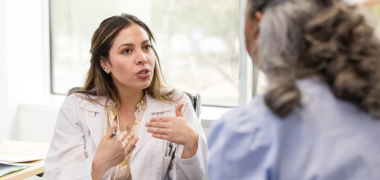
This role has a moderate level of AI exposure. AI can enhance efficiency for some tasks, but this job still relies on human skills and decision-making.
Explore all careersHospital Scientists conduct tests on samples to aid in diagnosing and treating patients, ensuring accurate results to support healthcare.
Get qualified to work as a Hospital Scientist with a course recognised across Australia. Speak to a training provider to learn more.








Browse occupations related to Hospital Scientist



If you're considering advancing your career in the healthcare field, the Hospital Scientist courses in Gisborne are an excellent option. With a choice of two higher education courses, aspiring Hospital Scientists in the Gisborne area, which is located in the picturesque Macedon Ranges, can find the right programme to enhance their expertise and pave the way for a rewarding career. The courses available are designed for experienced learners who already possess qualifications, making them ideal for those looking to specialise further.
The first course to consider is the Bachelor of Biomedical Science, which provides a strong foundation in the principles of biomedical science, essential for anyone looking to work in laboratory settings. Another recommended programme is the Master of Laboratory Medicine, which delves deeper into advanced laboratory techniques and practices. Both courses are offered by reputable institutions in the region, including Victoria University and RMIT University.
Completing these Hospital Scientist courses in Gisborne opens up various career opportunities in related fields. Graduates may pursue roles such as an Allied Health Assistant, Medical Imaging Assistant, or even a Anaesthetic Technician. Additionally, positions like a Medical Laboratory Technician or Pathology Assistant might also be appealing career paths post-study.
In Gisborne, aspiring medical professionals can explore various fields of study linked to the Hospital Scientist role. These fields include Healthcare courses, Pathology, and Allied Health, ensuring that students receive comprehensive training tailored to their career ambitions. With a focus on practical skills and real-world applications, students are well-prepared for the challenges of the healthcare sector.
For those ready to take the next step in their professional journey, they'll find all the necessary information about the Hospital Scientist courses in Gisborne, the specific training providers, and the exciting job opportunities that await. With the support of quality institutions like Victoria University and RMIT University, along with a range of related job roles, there's no better time to embark on your path to becoming a Hospital Scientist.